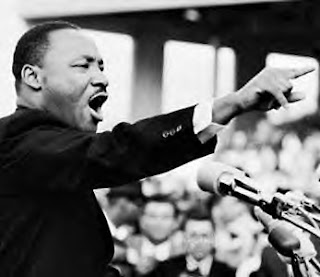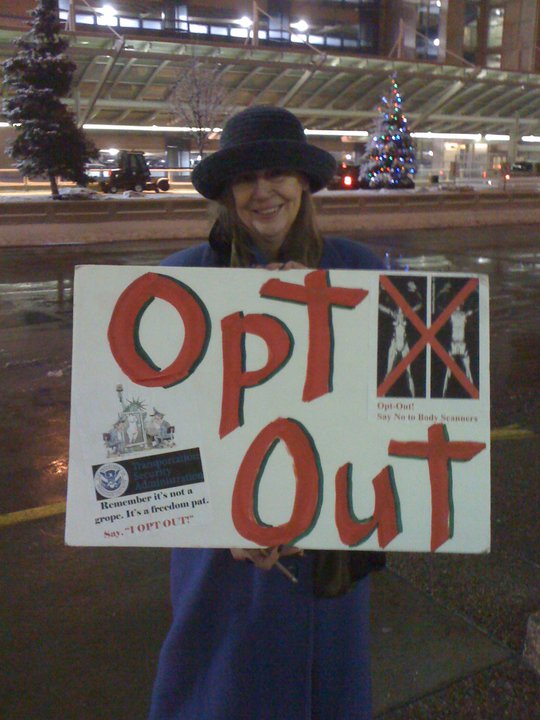 Dr. Martin Luther King Jr. (1929-1968)
Dr. Martin Luther King Jr. (1929-1968)
“They never gave us any meaningful news. They told us the day that Martin Luther King was shot, they told us the day that Bobby Kennedy was shot, but they never bothered to tell us about the moon shot. So it was certainly selected news.”--John McCain, emphasizing his indifference to the legacy of Dr. Martin Luther King Jr. in 1987, when he thought it was safe to.
I was just about to be born when Dr. King was murdered by an assassin's bullet in Memphis, that tragic day of April 4th, 1968. What the media won't be telling you is that over 200 American cities were on fire the next day. Buildings were burning just two-blocks from the White House. There were meles between the Black Panther Party for Self-Defense in Chicago and other cities. Often, the Panthers were baited into it by police intelligence units. Military helicopters were doing fly-overs above almost every major American city. Smoke billowed from the blazing-ruins of storefronts. It looked like a second civil war was coming.
Indeed, the war in Vietnam was coming home, and the violence was returning to those who had initiated it. The repression afterwards was ghastly, and things only got worse under Nixon, which could have been predicted. The "greatest generation ever" murdered Dr. King. The targets of assassination were on the Left, not the right. As we know, only two major right-wing figures on the cultural landscape were assassinated during the "1960s" (1964-1974): they were John Lincoln Rockwell of the American Nazi Party, and George Wallace. McGovern lived. Scoundrels frequently live to old age. Good men and women who join the struggle for social justice tend to die young. Dr. King was one-of-many during that storied era.
During the 1990s, one of them produced documents he found in Ray's white Ford Mustang--he was the first agent on the scene, and knew that this evidence was going to "vanish." He forwarded it to the Clinton Justice Department, where it was summarily destroyed. This should tell you a lot about where the Clintons truly stand on race and social justice. There are many other examples from them that are just as shocking. Then, there are those who are plainly racist in their behavior and rhetoric.
Roughly 25-years-ago, Arizona congressional representative John McCain voted against the establishment of a national holiday recognizing Dr. King and his sacrifices. This vote by the 47-year-old McCain was race-baiting, and in-the-spirit of the racialist Reagan years. Such a view was held as highly popular in the then-predominantly white Southwestern state. But the racialist mood was prevalent throughout Reagan America, which can now be viewed as a violent denial of the social justice movements of the 1960s-70s.
The fact that McCain would vote against this bill--whether he believed the inherent white supremacist assumptions by doing so--was egregious and unacceptable. He is clearly not a uniter, but then, neither are the Clintons. McCain was held by the North Vietnamese from 1966 to 1972. It appears he still has a lot of catching-up to do. None of this matters. Senator Barack Obama spoke of Dr. King's legacy so eloquently today in Fort Wayne, Indiana, just hours ago:
But in 1968, these workers decided they'd had enough, and over 1,000 went on strike. Their demands were modest --better wages, better benefits, and recognition of their union. But the opposition was fierce. Their vigils were met with handcuffs. Their protests turned back with mace. And at the end of one march, a 16-year old boy lay dead.
This is the struggle that brought Dr. King to Memphis. It was a struggle for economic justice, for the opportunity that should be available to people of all races and all walks of life. Because Dr. King understood that the struggle for economic justice and the struggle for racial justice were really one --that each was part of a larger struggle "for freedom, for dignity, and for humanity." So long as Americans were trapped in poverty, so long as they were being denied the wages, benefits, and fair treatment they deserved --so long as opportunity was being opened to some but not all --the dream that he spoke of would remain out of reach.
The tone in America has shifted, and the message is coming home to everyone. People are beginning to understand what the social movements of the 1960s-70s were saying: it's time for equality and a sense of fair-play. Welcome to the return of liberation theology in America, its time has come, and Dr. King is alive-and-well in the hearts of millions. As Dr. King said, we have the choice between chaos or community. That choice should be a simple one.




